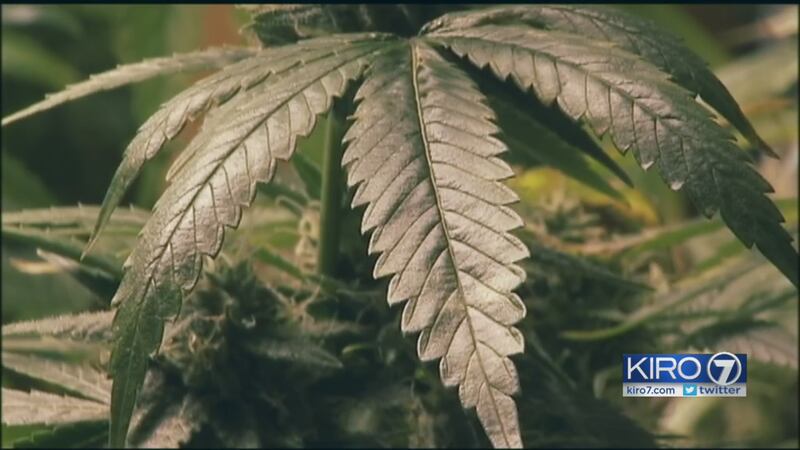More than half a million Afghanistan and Iraq war veterans are diagnosed with post-traumatic stress disorder (PTSD).
Some suffer severe depression and anxiety.
But a Vancouver, Washington, company has started selling capsules made with oil and herbs to treat those symptoms in a more natural way than prescription drugs, with marijuana.
%
%
Carlos Mullen's Stryker team from Joint Base Lewis McChord was the first Stryker unit deployed to Afghanistan. But in 2009, on a night patrol outside Kandahar, Afghanistan, their truck was attacked by insurgents.
Their vehicle struck an IED on a dirt road.
The Stryker unit lost seven soldiers in one day.
Mullen survived, but he had severe injuries to his lower body, and spent a year at Walter Reed Medical Center learning to walk again.
"One of the biggest things that I think for my struggle was the scars you couldn't see,” recalls Mullen, “it was the internal and the mental scars."
Diagnosed with PTSD, Mullen tried prescription antidepressants.
But they wouldn’t curb his flashbacks, and he couldn’t handle the side effects. So, he turned to alcohol.
“I was in a very dark place,” said Mullen, “a lot of soldiers fall into that trap.”
%
%
And just like a lot of veterans, Mullen eventually turned to marijuana for relief. Use of marijuana is so common among combat veterans who suffer from PTSD, the Department of Veterans Affairs devotes an entire section on pot and post-traumatic stress disorder.
It's also a booming part of the pot shop business for retailers like Clear Choice Cannabis a few miles from Joint Base Lewis McChord.
"We have seen supporting evidence a lot of people make the transition from pharmaceuticals into more of a natural remedy," said Lauren Samsel, a state-certified "Medical Marijuana Consultant" for Clear Choice.
The former Army Medic, and PTSD sufferer, meets with four to six veterans a day to find the right pot to smoke, drops to swallow, or capsules to take.
%
%
But a new product has really taken off.
Fairwinds Manufacturing, out of Vancouver, Washington has designed a capsule specifically for people with PTSD. The product only has two milligrams of THC, the active ingredient that gets people "high."
"PTSFree is really unique,” says Samsel, “it offers a non-psychoactive element to the relief."
Fairwinds CEO James Hull says the company spent months working with doctors and naturopaths to develop a standardized blend of cannabis oil, natural herbs, and vitamins.
He wanted the product to treat severe stress and anxiety, not get people high.
"We don't produce joints. We don't sell flower directly,” said Hull, “we're providing a product that is really effective."
In testimonial emails, customers say the PTSFree capsule reduces nerve and stomach pain.
One customer says she's the capsule helps her more than four prescription drugs ever have.
But in the traditional medical world, cannabis still isn't considered a viable medicine for psychological disorders like PTSD. The primary reason is because there hasn't been enough clinical research on the issue.
However, that's changing.
%
%
Dr. Michele Bedard-Gilligan, a University of Washington Clinical Psychologist, has launched one of the first clinical case studies in the United States.
Bedard-Gilligan is testing the effect of marijuana on PTSD sufferers, when used in combination with regular counseling sessions.
"There's some pretty good pre-clinical research that suggests that both THC and CBD, the active ingredients in marijuana, might actually help," said Bedard-Gilligan.
But experts say any potential clinical benefits need to be weighed against known negative aspects of marijuana in some users; lack of motivation, detrimental cognitive degradation, and risk of addiction.
Although a couple dozen research studies are ongoing, the official position of the Department of Veterans Affairs is clear:
“There is no evidence at this time that marijuana is an effective treatment for PTSD. In fact, research suggests that marijuana can be harmful to individuals with PTSD.”
%
%
Afghanistan War veteran, Carlos Mullen, who was awarded a Purple Heart for his service, isn’t waiting for clinical evidence. He knows pot products have brought him peace.
"Since I found cannabis, I've been alcohol free,” said Mullen. “There's been three in-patient rehabs that couldn't do that."
Cox Media Group








